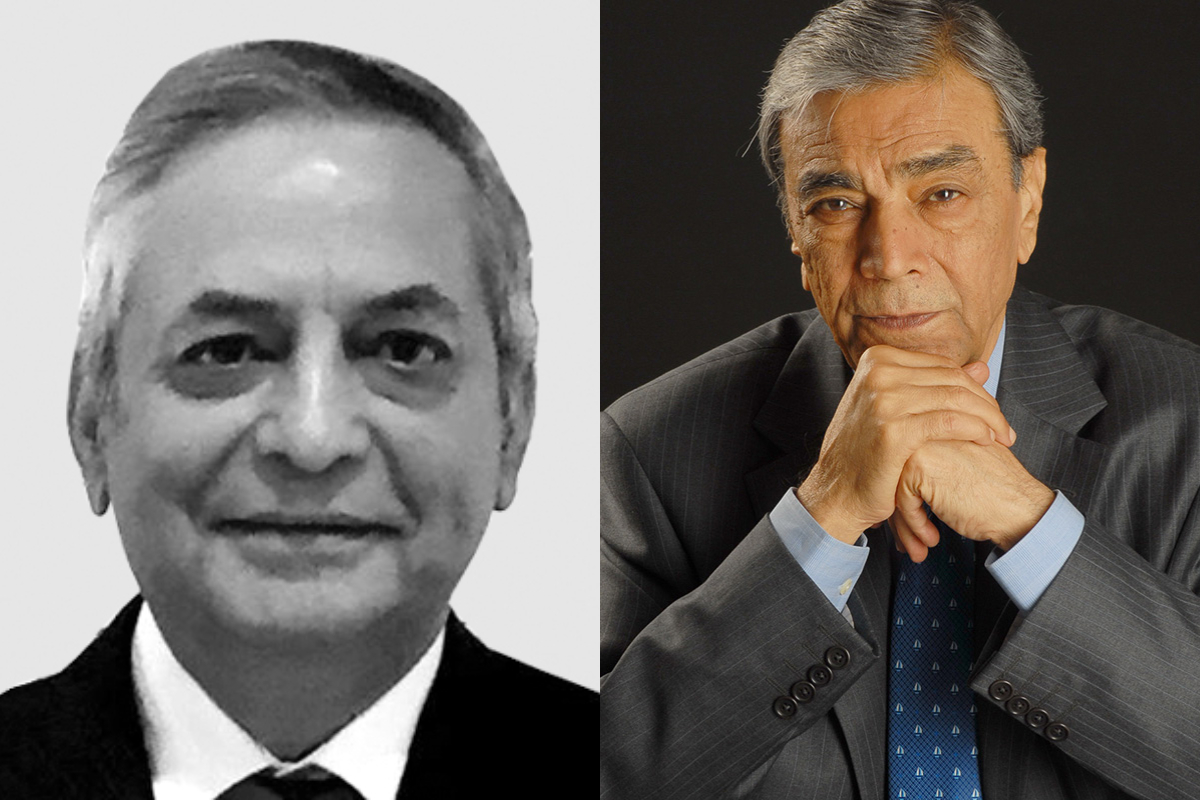Living between two cultures, Zia Mohyeddin was a proud man who conducted himself in society as grandly as he did in the world of stage and performing arts
“Have you met Zia Mohyeddin?” asked Naeem Bokhari, my friend.
It was Naeem’s house in Islamabad where we would often have sittings; it was a beautiful evening immersed in an intellectual conversation.
I looked at Naeem Bokhari, with my eyes oozing a wish to meet Zia Mohyeddin. I immediately replied: “No, I haven’t, but I’d love to meet him someday”.
As if my heart secretly harbuored a desire to meet Zia Mohyeddin, not knowing that he would soon become Zia Bhai to me.
A name, imbued with so many layers of meanings, became a regular friend of mine with our families connecting with each other as well. A dream that came true in a blink of an eye.
Naeem would always host Zia Bhai whenever he would visit Islamabad. That was the time when I also met Zia Bhai, the great Zia Mohyeddin. My two dear friends gathering at one place harks back a plethora of exciting moments and brings back to mind oodles of fine memories, such as delightful conversations, sharing experiences and exchanging each other’s stories and bittersweet memories, never-ending laughter, and wishing that this evening never finishes and we continue to live such happiest moments together. Alas! What else I could ask for?
Since that initial introduction, Zia Bhai and I became very close friends. I lived between London and Islamabad, and he regarded the UK as his second home – a home away from home.
Perhaps destiny also had a role to play. Zia Bhai landed in Birmingham but inevitably gravitated to London and his permanent host, Ismat Rasheed was a very close family friend of ours – in fact, she lived within walking distance of our house. Ismat’s late husband Rasheed was Zia Bhai’s best friend and he always stayed over as a guest when Rasheed was alive.
Zia Bhai and I had many common interests, e.g. acting, film, cricket, literature and, of course, Bridge. Anyone would tell you that he was not exactly an easy man to be around, but once the frequency of interaction happened, one would find him to be a very good companion and amiable friend. People may have found him a difficult person as he was proper. Proper people don’t always gel with casual, irreverent types in life. Zia Bhai was neither intimidating nor was he overbearing, but his aura could unnerve the more delinquent among us.
Beyond his wife Azra and daughter Aliya, a friend who was like a compass for Zia Bhai’s existence in the UK was Murawat Hussain. He remained a man par excellence and continues to be so. A successful businessman and socially well-respected figure in Birmingham, Murawat took care of our oft-fragile and non-streetwise Zia Mohyeddin, and all his needs. Naeem Bokhari would agree that Murawat was to Zia Bhai in the UK what Arshad Mehmood, one of the great composers of today’s Pakistan, was to him at NAPA in Karachi.
Zia was a proud man who conducted himself in society as grandly as he did in the world of stage and performing arts. He was a man who, like many others including myself, was torn between two cultures. He loved the English way of life and equally adored his motherland. He was aware of his potential and despite retiring from the BBC, he chose to bring his charm to Pakistan. He knew how people loved him from The Zia Mohyeddin Show, a TV programme I enjoyed as a young subaltern in Karachi.
He was excellent at playing Bridge. The sharpness of mind, a quintessential attribute for a Bridge player, was in abundance with Zia Bhai.
For me, the joy of his company was in his great sense of humour, his humility and the essential beauty of his sentences as spoken, whether in Urdu or English. I was lucky enough to have Zia Bhai listen to and genuinely indicate his pleasure at my own poetry recitals. This would feel to me like winning an award from Zia Mohyeddin!
We used to discuss art, literature, film history and family matters. One may imagine the joy I was getting in knowing the routines of the Royal Academy of Dramatic Arts, the deserts of David Lean’s Lawrence of Arabia, Peter O’Toole anecdotes, or tales of my friend Badi Uzzaman who Zia Bhai played against in Channel 4’s Tandoori Nights. Since he is no more with us, how can I not mourn him?
At my age, it’s hard to be sad but I am. It is not easy either to process his death as I was not mentally ready for this news. However, the grief process is deep just as our conversations were, it somehow plays a role of a catalyst to heal. His bereavement is weighing on my heart as it pounds every time I think of his demise. I will regularly go each year on a pilgrimage to Birmingham and visit the haunts Zia Bhai and I would be found at. I shall also keep two seats vacant: one for Zia Bhai and the other for another dear friend Bashir Badar, who also is no more. I would recall and relive the moments we spent together and cherish them.
When I make it to this pilgrimage for Zia Bhai I plan to say to Murawat Bhai – I am not through yet but I feel a sense of melancholy as our seats are becoming increasingly vacant.
Zia bhai, rest in peace.
[embedpost slug=”mahira-khan-adnan-siddiqui-and-others-mourn-the-death-of-zia-mohyeddin/”]

















